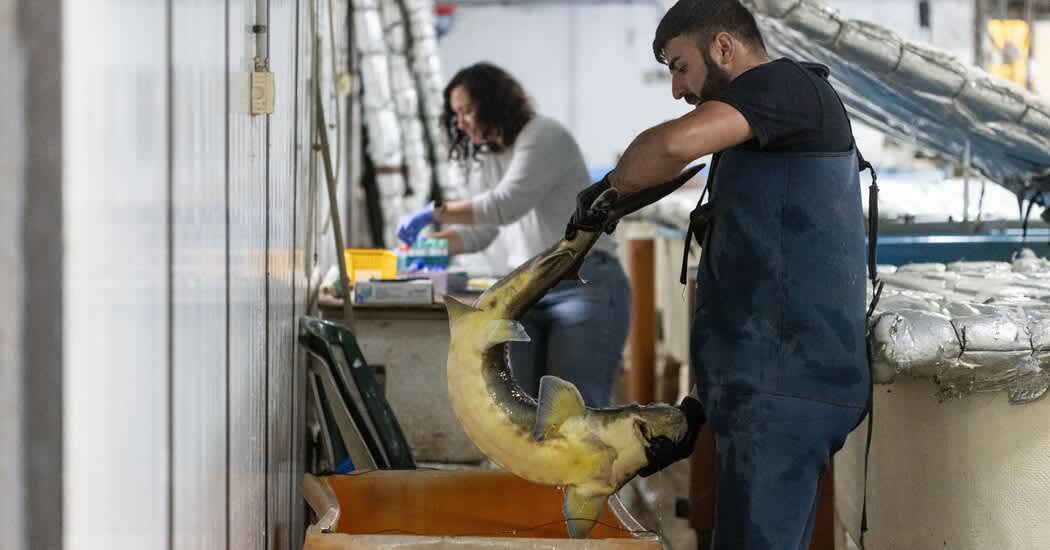Israel dispatch
The war with Hezbollah has cleared out the north of the country — save for a hardy few and their thousands of prized fish.
Jack Nicas traveled to the Israel-Lebanon border to speak with caviar producers. He also joined them in taking shelter from Hezbollah fire.
Shrapnel kept turning up in the fish pools. The twisted metal had been falling from the sky for 14 months, detritus of Hezbollah rockets and Israeli missile interceptors colliding overhead.
There was not much the fish farm’s workers could do, other than pick it out and soldier on. The war had largely emptied the rolling hills along Israel’s border with Lebanon, but about a dozen farmers had stayed put.
The fish — 50,000 female osetra sturgeon gliding back and forth in 39 pools — had to be fed.
“Every morning I ask myself if this is the right thing to do — to ask the employees to come in again and again,” Assaf Koren, the fish farm’s boss, said recently, between constant booms of outgoing and incoming rockets, just before a cease-fire was reached. “But,” he added, “we don’t have any other choice.”
Why? Those sturgeon carried the ovaries that promised a decade’s worth of caviar. Once extracted, salted and shipped off to places like New York, Los Angeles, Paris and Tokyo, the eggs could be worth upward of $40 million. “We must continue,” Mr. Koren said, a pistol tucked into his pants.
So, three weeks earlier, when Mr. Koren watched a Hezbollah rocket blow off the steel door of the factory at Caviar Galilee, spraying shrapnel and igniting a truck, everyone returned to work the next morning. The fish had to be fed.
We are having trouble retrieving the article content.
Please enable JavaScript in your browser settings.
Thank you for your patience while we verify access. If you are in Reader mode please exit and your Times account, or for all of The Times.
Thank you for your patience while we verify access.
Want all of The Times? .
Source: www.nytimes.com
